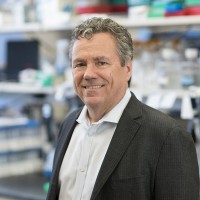Mission
The Edward P. Evans Center for Myelodysplastic Syndromes (MDS) at Memorial Sloan Kettering Cancer Center aims to develop a molecular and immunologic mechanism-based therapeutics program focused specifically on MDS. The program includes preclinical and clinical efforts, and capitalizes on existing resources at MSK and our collaborative Tri-Institutional programs at Rockefeller University and Weill Cornell Medical College. Our mission is to advance therapeutics that target recurrent genetic alterations in MDS patients, generate new epigenetic-targeted approaches for MDS, and develop novel immunologic approaches to treat people with MDS.
Scope
The treatment of patients with high-risk MDS is a major unmet medical need. Allogeneic hematopoietic stem cell transplantation is the only curative approach for MDS and is feasible in only a minority of patients due to the advanced age of most MDS patients. There have been no recent FDA-approved therapies for high-risk MDS patients and hypomethylating agents are the only FDA-approved options for the majority of high-risk MDS patients.
We propose a multi-pronged approach to develop novel therapeutics for MDS patients utilizing several avenues of personalized treatment strategies that target specific genetic subtypes of MDS. Given the molecular heterogeneity of MDS, we will also pursue mutation-agnostic immunotherapeutic and epigenetic targeted approaches.
To accomplish this, the Edward P. Evans Center for MDS at MSK will include three major programmatic efforts in focused on MDS therapeutics development:
- Targeting RNA splicing factor-mutant MDS
- Epigenetic-targeted therapies for MDS
- TP53 mutations in MDS
- Targeting novel cell surface antigens and developing new cellular therapeutics for MDS
Leadership

Senior Vice President, Memorial Hospital, Translational Research

Director, Center for Hematologic Malignancies; Director, Myeloproliferative Neoplasms Program
Members

Assistant Attending Physician

Director, GES Core



Chair, Cancer Biology & Genetics Program, SKI; Chair, Geoffrey Beene Cancer Research Center; Investigator, Howard Hughes Medical Institute

Chief, Leukemia Service; Director, Program for Drug Development in Leukemia, Division of Hematologic Malignancies